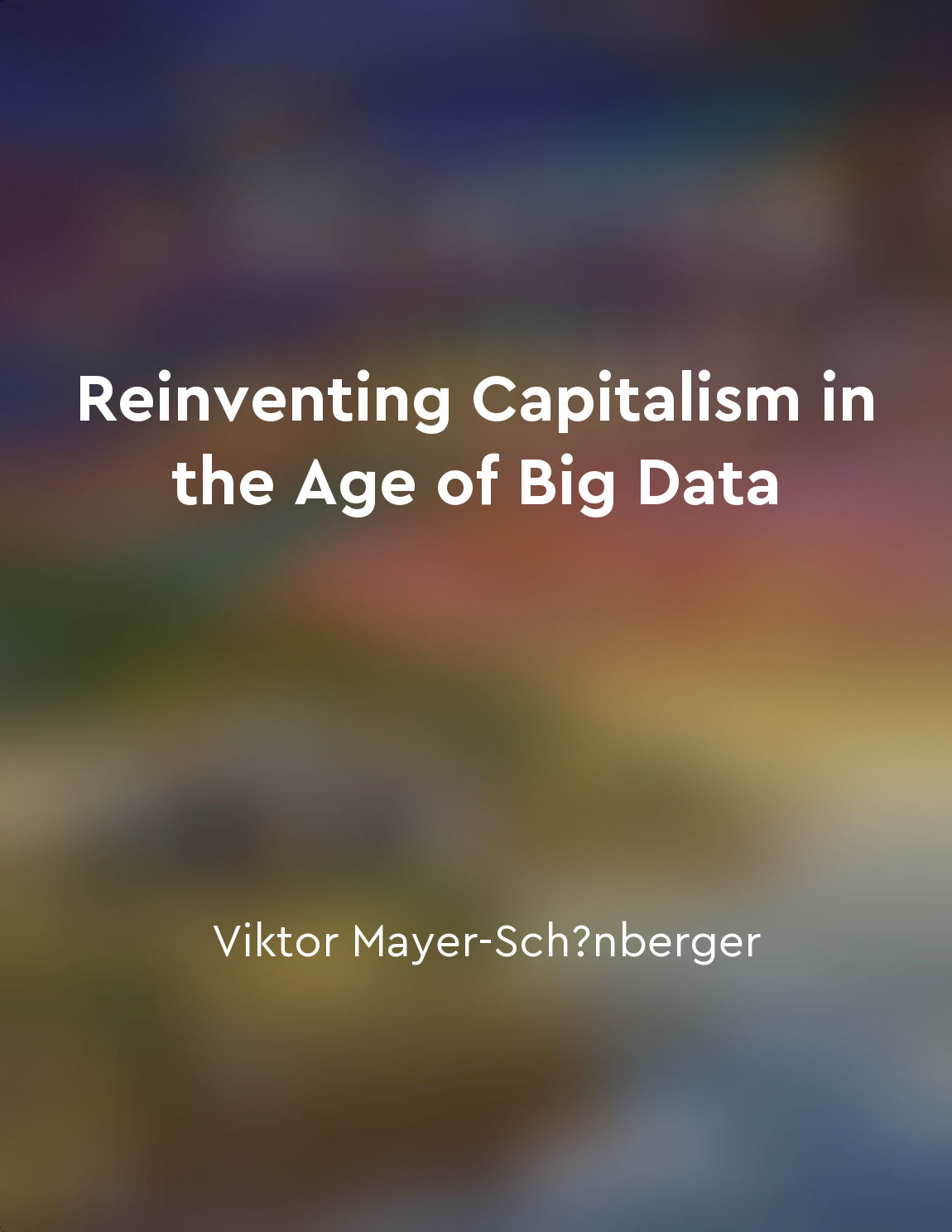The role of regulation in shaping the industries of the future from "summary" of The Industries of the Future by Alec Ross
Regulation plays a pivotal role in determining the trajectory of industries in the future. It can either act as a catalyst for innovation or a barrier to progress. In many cases, regulation is necessary to ensure that industries operate ethically, responsibly, and in the best interests of society. However, overly restrictive regulations can stifle creativity and hinder the development of new technologies. Regulation can shape industries by setting standards for safety, quality, and ethical behavior. For example, regulations in the healthcare industry ensure that drugs are safe for consumption and that medical devices meet certain standards. These regulations not only protect consumers but also create a level playing field for companies to compete on. On the other hand, excessive regulations can impede innovation and hinder the growth of industries. For example, in the technology sector, regulations around data privacy and security can sometimes be so stringent that they discourage companies from investing in new technologies. This can ultimately slow down progress and limit the potential for growth in the industry. Regulation also plays a crucial role in shaping the competitive landscape of industries. By setting rules around market entry, competition, and consolidation, regulations can either promote a healthy competitive environment or create barriers to entry for new players. This can have a significant impact on the growth and development of industries in the future.- The role of regulation in shaping the industries of the future is complex and multifaceted. It is essential for governments to strike a balance between protecting consumers and fostering innovation. By creating smart, adaptive regulations that respond to the changing needs of industries, governments can help ensure that industries continue to evolve and thrive in the future.
Similar Posts
Job titles are meaningless
In the business world, job titles are often used as a way to define a person's role within an organization. However, the realit...

Global trade benefits all
The principle of global trade being beneficial to all parties involved is a fundamental tenet of economic theory. When countrie...

Free markets encourage entrepreneurship
The fundamental idea behind free markets is that individuals are free to make their own choices about what to produce, how to p...

The allure of unlimited possibilities beckoned dreamers
The world was full of dreamers who were drawn to the promise of boundless opportunities. They were captivated by the idea that ...

Market dynamics drive economic outcomes
Market dynamics, characterized by the interplay of supply and demand, competition, innovation, and consumer preferences, play a...

The balance between data use and privacy must be carefully managed
In our digital society, data has become a valuable resource that fuels innovation and economic growth. Companies and government...
Cultural values influence economic decisionmaking
The idea that cultural values play a crucial role in shaping economic decision-making is a fundamental concept in the study of ...

